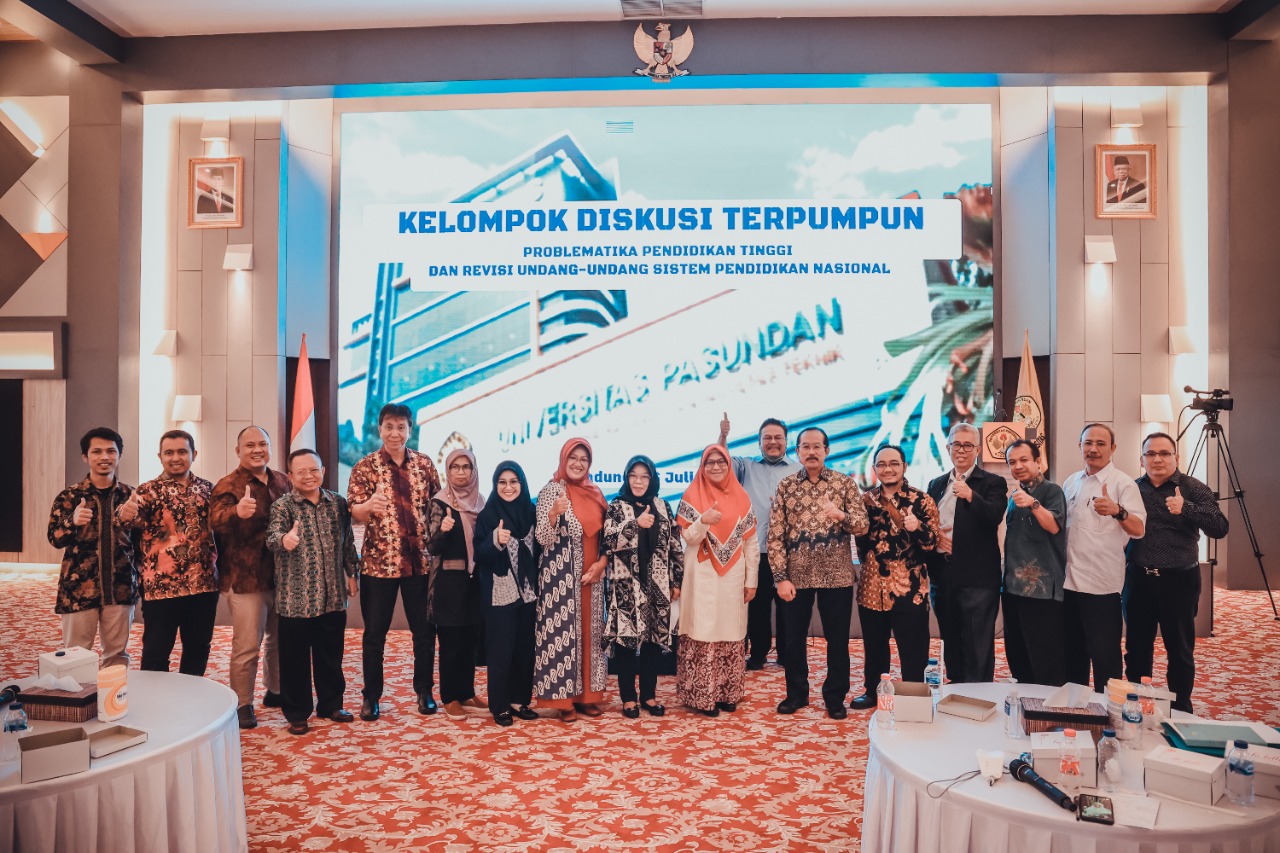
BANDUNG, unpas.ac.id – Regulations related national education seemingly needs to be revised in order to respond to the educational challenge in modern era. Government is both asked seriously, detailed and careful as well, to prepare and set the Constitution Plan of National Education System (Sistem Pendidikan Nasional, Sisdiknas).
This was stated by Members of Commission X for Indonesian Council of People’s Representative (Dewan Perwakilan Rakyat, DPR RI) Partai Keadilan Sejahtera (PKS), Ledia Hanifa Amaliah in a Focused Group Discussion (FGD) regarding “Problematika Pendidikan Tinggi dan Revisi UU Sisdiknas” at the Hall of Mandala Saba Ir. H. Djuanda, Campus II Universitas Pasundan, on Tuesday, 26 July 2022.
The discussion was attended by General Chairman of Paguyuban Pasundan, Vice Rectors, representatives of Universitas Inaba, Universitas Halim Sanusi, Unwim, Stikes Budi Luhur, STIE Tridharma, STIA Bandung, Stikom Bandung, Poltekpos, Poltek LP3I, Head of Unpas P3AI, and Head of Department of Unpas Magister of Public Administration.
It aimed to accommodate suggestions and advices from higher education leaders to be followed up and submitted to the Ministry of Education and Culture in making evaluation regulation for the preparation of RUU Sisdiknas.
Draft of RUU Sisdiknas should be carefully Studied
In the last few months, the public has been disturbed by the circulation of a leaked draft of the Regulation of National Education System Bill which has raised various criticisms.
Officials at the Ministry of Education and Culture, as well as the information released on the ministry’s official website, admitted that they had conducted a limited public test to review the draft of the preliminary regulation.
Unfortunately, this initial draft raises sensitive issues, such as the disappearance of the phrase madrasah from the body, community participation in financing education, changes in educational standards, the emergence of independent institutions that can participate in assessing students, and so on.
“Commission X as a partner of Kemendikbudristek has not even received an official draft. The public test which has only been conducted in a limited way is already crowded and controversial, especially until it is included in the priority of next year’s regulation. Therefore, it must be really thorough and studied in depth,” said Ledia.
The leaders of universities who attended were asked to submit suggestions and advices according to the problems faced in their respective institutions. The majority of university representatives complained about the MBKM conversion system, the KKNI curriculum, vocational education policies, distance learning (Pembelajaran Jarak Jauh, PJJ), and the absence of education allocations from the State Revenue Budget (Anggaran Pendapatan Belanja Negara).
Responding to this matter, Rector of Unpas Prof. Dr. Ir. H. Eddy Jusuf Sp, M.Si., M.Kom., IPU. stated that there are many problems faced by universities, especially the private ones; including the system of new student selection, the opening of PSDKU PTN, as well as the high cost of accreditation of study programs through LAM.
“Right now, state universities’ selection system is limitless; various opportunities are carried out, including independent selection, collaboration, and others. They also seem to be competing to open PSDKU in private university’s department, and the hardest one is, the high cost of department’s accreditation considered burdensome for private university,” he said.
Regarding the content of the National Education System Regulation, Ledia said there are at least five things that must be included in it. All of them refer to the 1945 Constitution.
“The point is, don’t be in a hurry to ignore basic things that must be taken into consideration in making laws concerning the future of education in Indonesia. Ladies and gentlemen are parties with an interest in the National Education System, so it is important to assess how preparedness, seriousness, foundations, and government policies are in producing the Bill,” he concluded. (Reta)**
